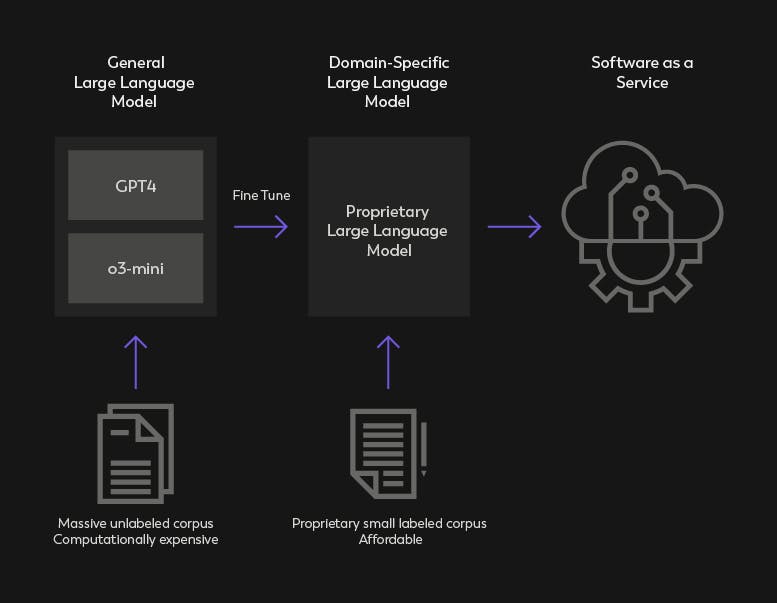
AI agents in action: their benefits and game-changing examples
Would AI technology improve your business? This is a valid question to consider: some innovations are a must, others “a pass”, and most companies can’t afford to gamble. That’s why it helps to look at real-world examples and benefits first.
AI agents are no longer just concepts—they're transforming industries at this very moment. From automating workflows to revolutionizing entire sectors, AI agents are changing the game.
But the real question here is: are you using them to your advantage—or falling behind? Let’s dive in.
How AI agents add value
AI agents are software programs that handle tasks on their own, using machine learning to process data, make decisions, and adjust as they go. They've been around for decades, but large language models (LLMs) have pushed them further. Trained on vast amounts of text, LLMs can generate human-like responses, making them useful for everything from customer service to content creation.
AI agents are transforming the way we interact with technology. Here are some key ways we think they’re making a real impact:
Enhanced communication
LLM agents process natural conversations, making them ideal for customer service, virtual assistants, and onboarding. Their understanding of context and details leads to more effective interactions.
Effortless content creation
Whether it's drafting emails, writing articles, or generating creative content, LLM agents can quickly generate text that matches the desired tone and style, helping businesses save time and resources.
Actionable data insights
LLM agents can analyze large datasets, extracting valuable insights and generating reports. This capability is particularly useful in fields like business intelligence and decision-making, where time and accuracy matter.
Efficient automation
From managing social media accounts to scheduling appointments, AI agents handle repetitive tasks efficiently, freeing up people to focus on bigger priorities.
Transfer learning: the key to LLM success
What is transfer learning?
Transfer learning is a technique where a pre-trained model is adapted for a new task, saving time and computational resources. Instead of building a model from scratch, developers fine-tune an existing model that has already been trained on a large dataset.
How does this work in practice?
For LLMs, transfer learning occurs in two phases: pretraining and fine-tuning. During pretraining, the model is exposed to massive datasets to understand language patterns, grammar, and context. In the fine-tuning phase, the model is refined with a smaller, task-specific dataset to enhance its performance for particular tasks, such as sentiment analysis or question-answering. Since they already grasp language structure from pre-training, fine-tuning takes less time and computing power. This makes LLMs more adaptable and efficient, enabling them to be customized for various industry applications.

Transfer learning
Practical applications of AI agents
LLM agents are transforming businesses by automating tasks, improving decisions, and optimizing workflows, driving innovation across industries. Here are some real-world examples of their impact:
Smarter virtual assistants
LLM agents can handle tasks like managing schedules, answering questions, and automating routine processes. Businesses can leverage them to improve team productivity, enhance internal workflows, and provide seamless customer interactions, reducing the burden on human employees.
AI-powered customer support
LLM-based agents are transforming customer service by providing instant, human-like responses. These agents handle everything from troubleshooting to personalized recommendations, offering 24/7 support, cutting costs, and enhancing customer satisfaction with faster, more efficient service.
Enhanced healthcare insights
In the medical field, LLM agents assist in analyzing patient records, summarizing research papers, and supporting healthcare professionals with diagnostics and treatment planning. Their ability to process vast amounts of medical data allows for faster, more accurate insights, improving patient care and operational efficiency.
Finance and risk analysis
LLM agents in finance analyze data, provide market insights, and support real-time decisions. Whether it's fraud detection, risk assessment, or optimizing investment strategies, these AI-driven solutions help businesses make data-backed, informed choices.
Logistics and automation
The transportation and logistics industry benefits from AI agents that optimize supply chain management, enhance route planning, and automate customer communication. By integrating AI-driven decision-making, businesses can reduce costs, increase efficiency, and streamline operations in real time.
Step into the AI future
From virtual assistants to autonomous systems, AI agents are transforming the way we live and work. Their ability to learn, adapt, and operate autonomously makes them essential in today’s fast-paced world. As technology continues to advance, their potential applications are limitless, promising a future where theory becomes a reality in ways we can only begin to imagine.
Need a AI agent tailored to your business needs?
Drop us a message to find out how we can help you achieve your goals.